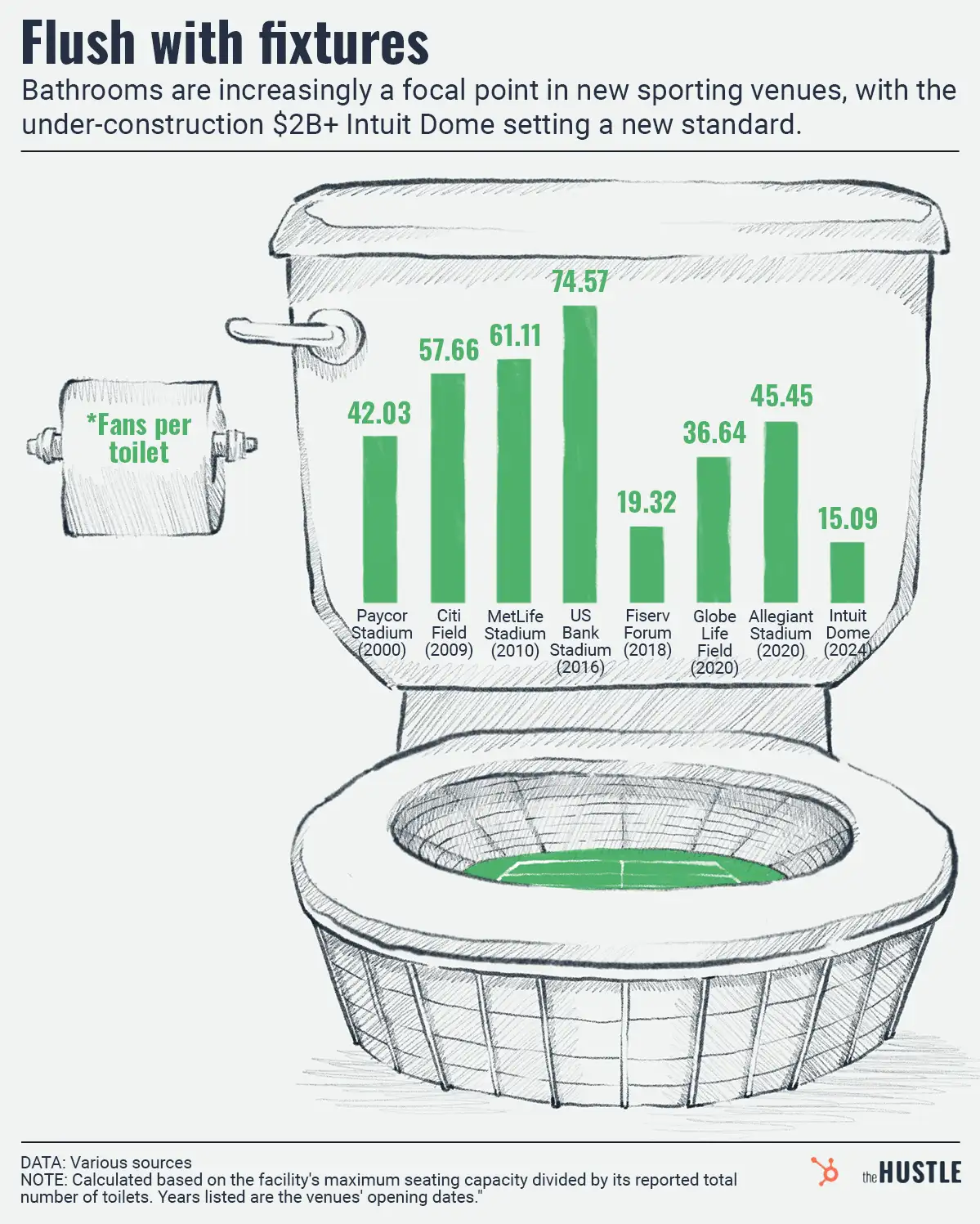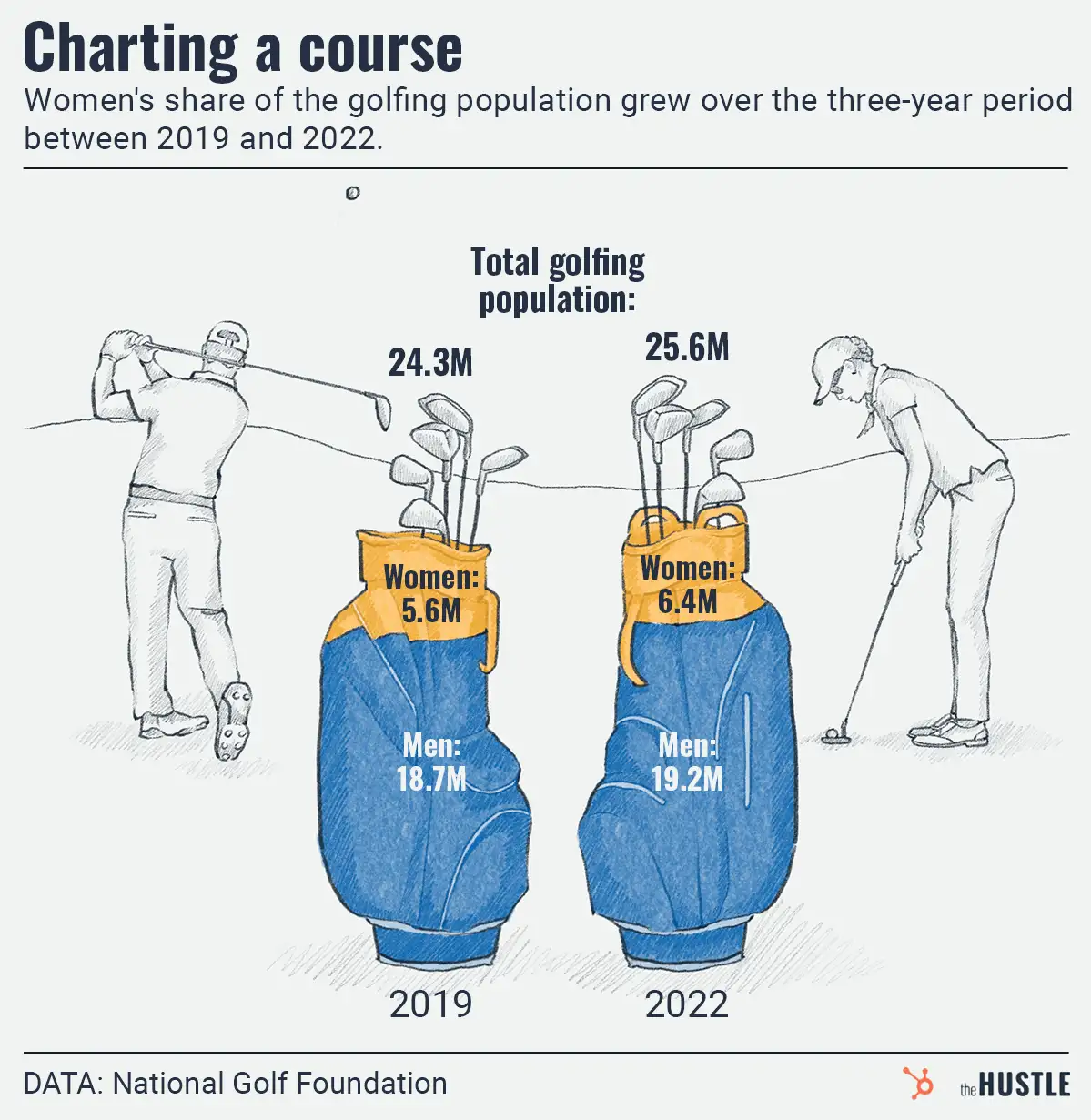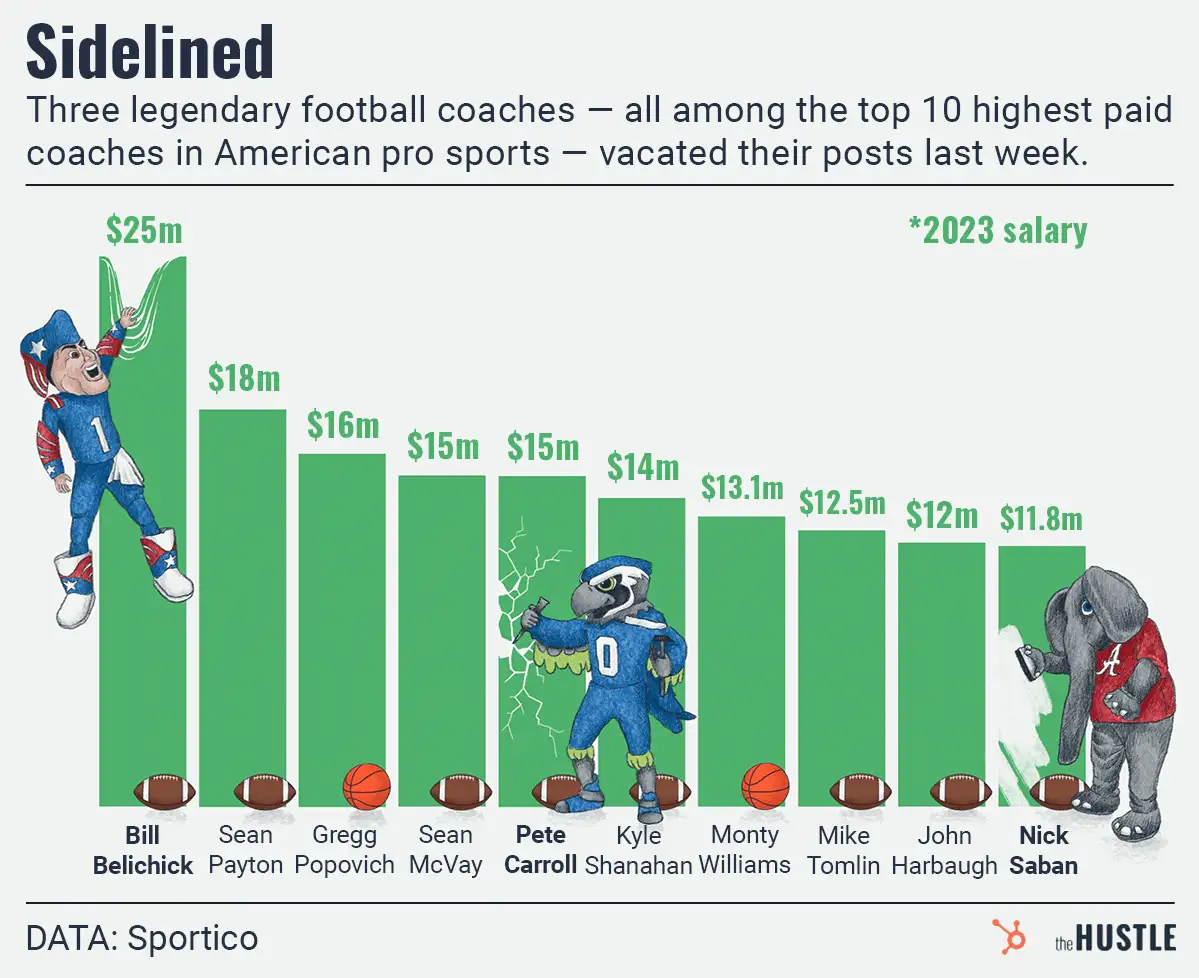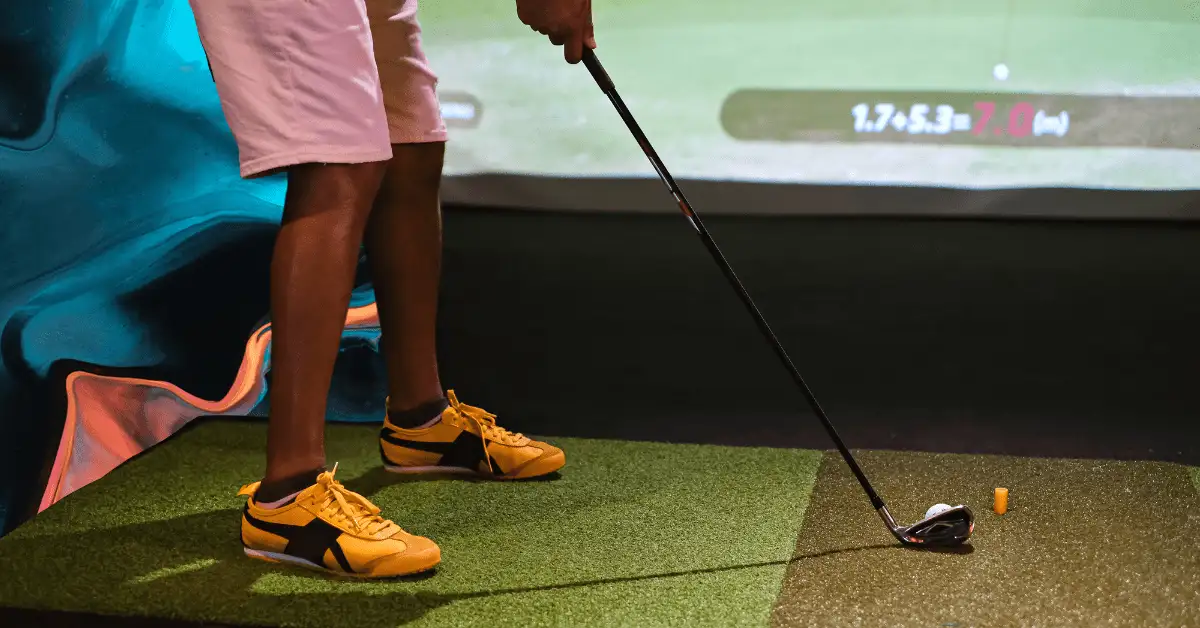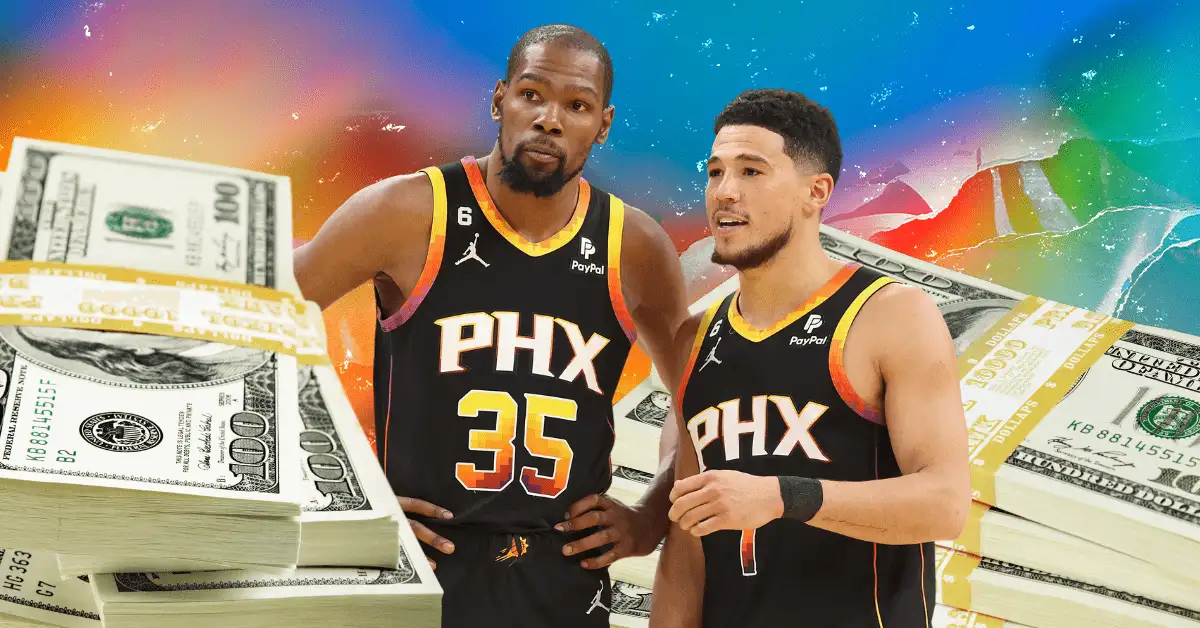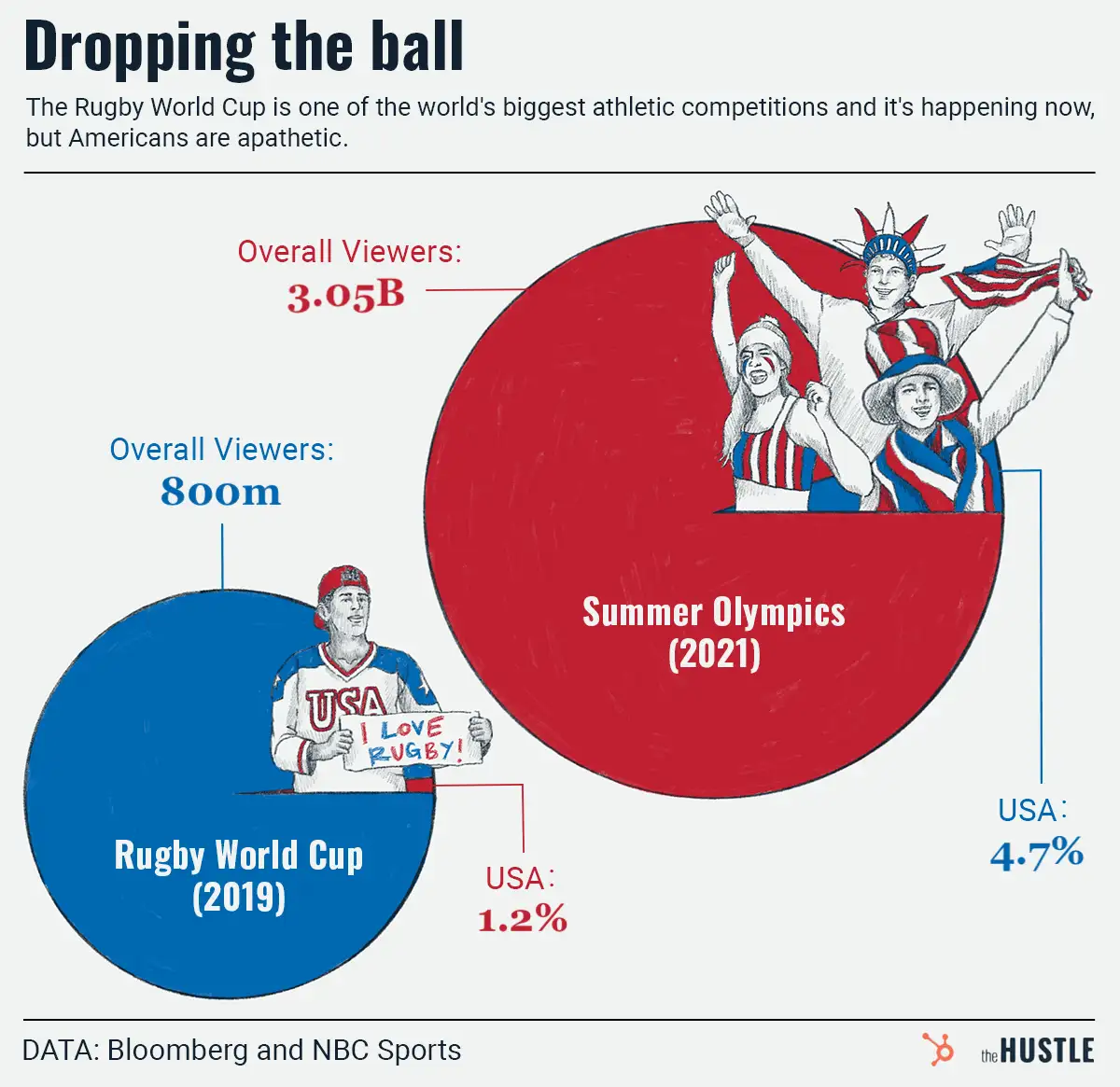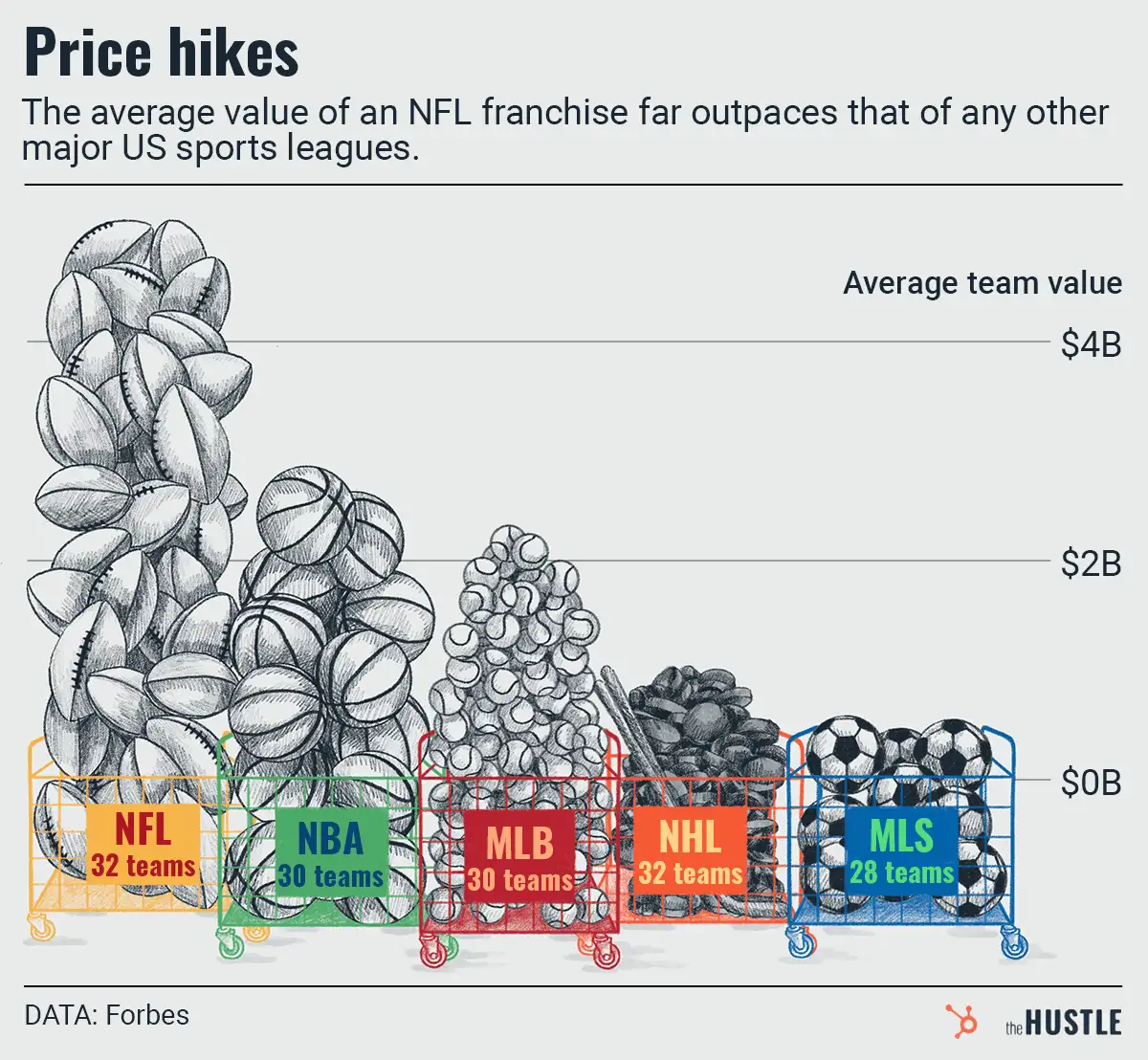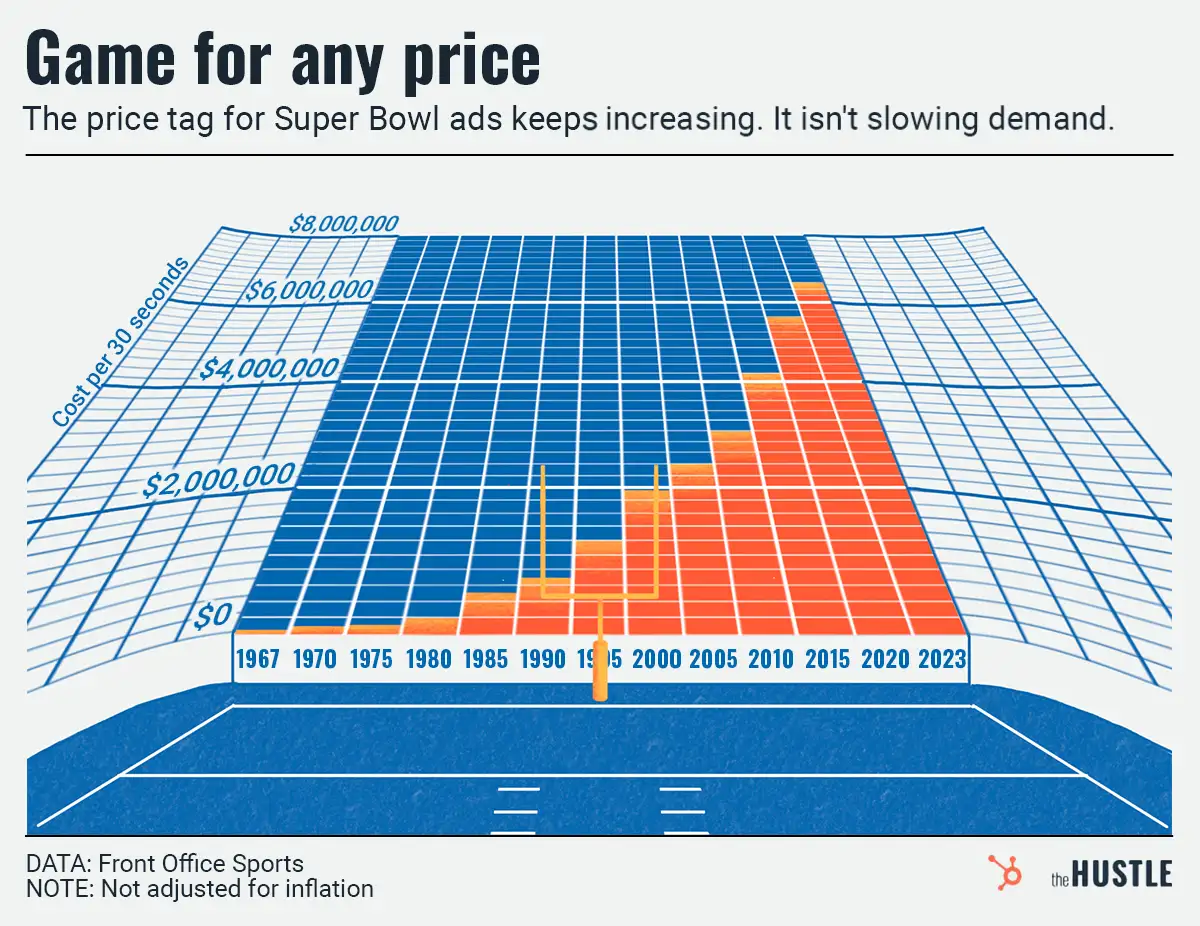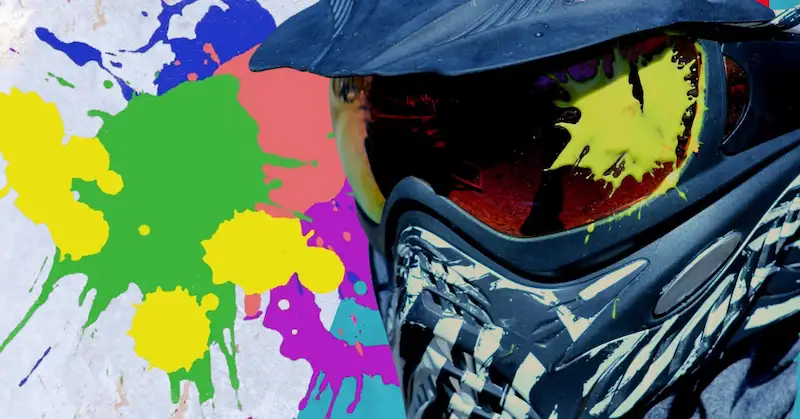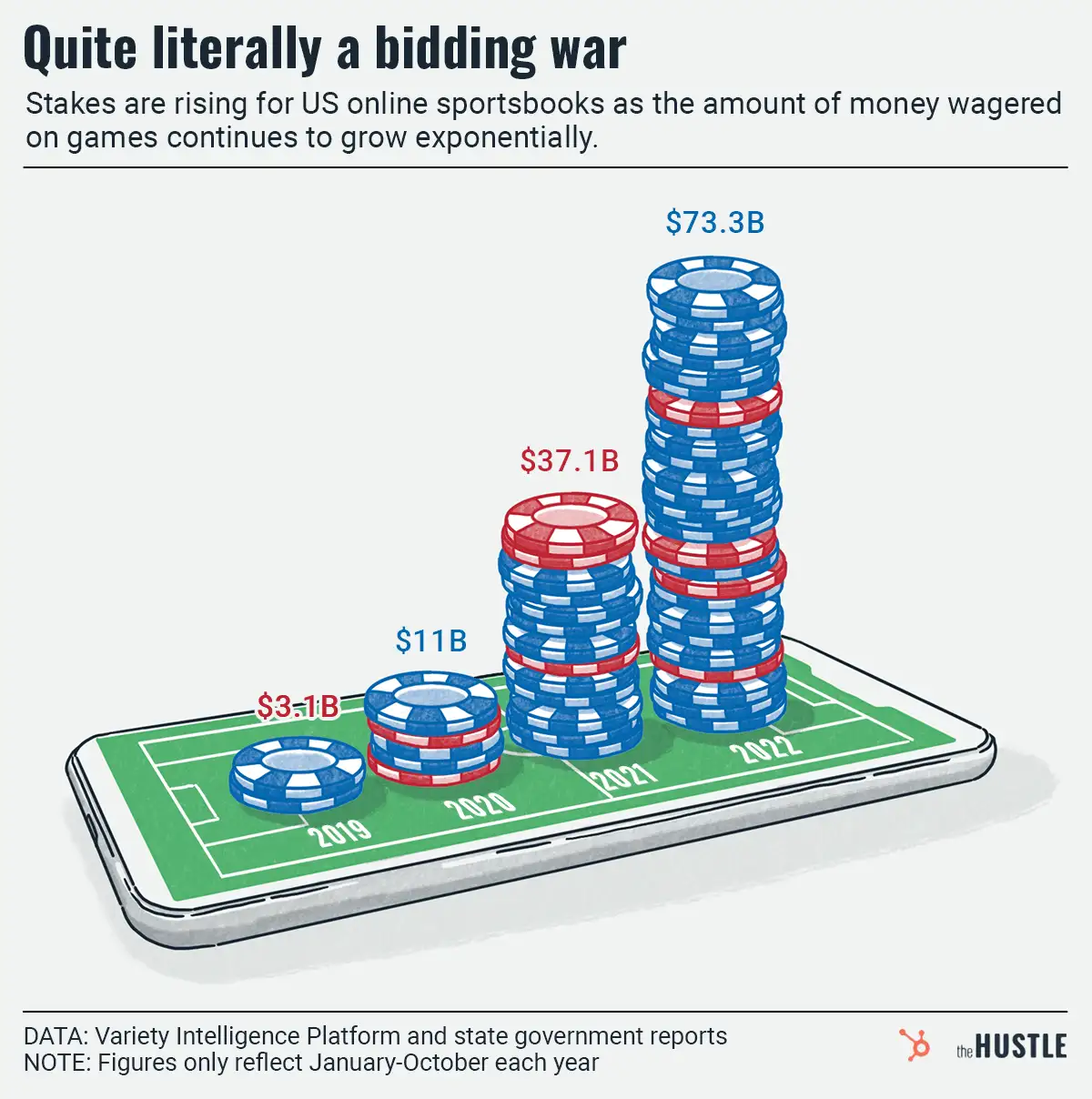Rayquan Smith is a record-setter for the modern college sports industry: the self-proclaimed “King of NIL.”
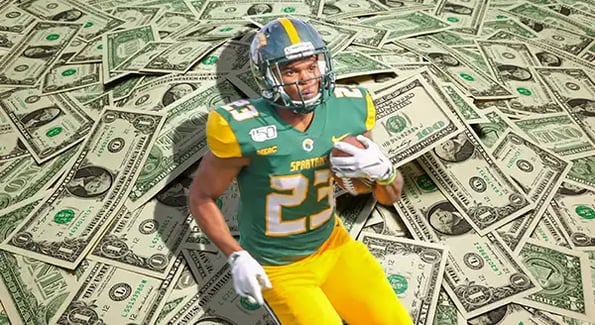
Smith is a track athlete and football player at Norfolk State University, a historically Black university in Virginia. Since the NCAA changed its rules to allow athletes to cash in off their name, image, and likeness (NIL) last July, he’s racked up 70+ deals with brands — an unofficial record.
Smith is one of many athletes benefiting from a lucrative new world.
For 100+ years…
… the NCAA (AKA National Control-Freak Athletic Association) was thoroughly against athletes benefiting off their fame.
- Seriously: The organization once punished three Oklahoma football players for receiving free pasta.
But now deep-pocketed donors at top schools have created “collectives” to help athletes make money from NIL. Individual athletes can do things like monetize their social media followings, appear in ads, or sell their own products (as University of Florida gymnast Leah Clapper has done with her gymnastics board games).
The average Division I athlete made ~$3.7k from NIL last year, per NIL facilitator Opendorse, but a few are making a killing:
- Oscar Tshiebwe, a star basketball player at Kentucky, skipped the NBA Draft to net ~$2m for another year of college hoops.
- Haley and Hanna Cavinder, twin sisters who play basketball for the University of Miami, started an apparel company on the strength of their ~5m social media followers.
The Cavinders’ NIL efforts have shattered misconceptions that women’s sports can’t be lucrative. Women’s basketball players have made nearly as much from NIL as their male counterparts, according to Opendorse.
How big will NIL get?
A few months ago, The Athletic reported a high school junior football player signed an ~$8m contract with a school’s NIL collective. In other words: We’re probably just seeing the tip of the NIL iceberg as universities and athletes become more savvy.
The schools may want to use Smith as a consultant. His deals haven’t been worth millions — he told radio host Paul Finebaum they’ve been worth somewhere in the high five figures — but they show remarkable grit.
After getting rejected from 99 of the first 100 companies he contacted, brands now reach out to Smith almost every week.

